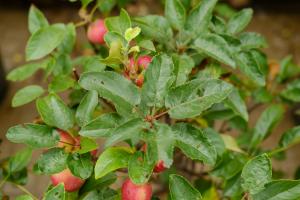When to Plant Vegetables in New England
New England's unique climate and geographic location can be both a blessing and a curse for gardeners. On one hand, the region's cool and moist weather is ideal for many crops. On the other hand, the short growing season can make it challenging to grow certain vegetables. In this article, we will explore the best times to plant vegetables in New England.
Spring Planting
Spring is a great time to plant many vegetables in New England. Once the ground has thawed and temperatures start to consistently stay above freezing, it's time to start planting. Some good vegetables to plant in the spring include peas, radishes, lettuce, spinach, and onions. These crops can handle cooler temperatures and will grow quickly.
Summer Planting
Summer is the peak growing season in New England. When deciding what to plant in the summer, it's important to consider your garden's microclimate. Some areas in New England can experience hot, dry summers while others may have ample rain. In general, summer vegetables like tomatoes, cucumbers, and peppers prefer warm weather and lots of sun. These crops should be planted in late spring to early summer.
Fall Planting
Fall is actually a great time to plant vegetables in New England. The cooler temperatures and shorter days can be beneficial to certain crops. Late-season vegetables like broccoli, cauliflower, brussels sprouts, and carrots can thrive in the fall. These crops are relatively cold-tolerant and can often be harvested well into November.
Other Considerations
When planning your garden, it's important to keep in mind the first and last frost dates in your area. The first frost usually occurs sometime in October in New England, but this can vary depending on your specific location. Using this date as a guide can help you determine when to plant certain crops.
Additionally, it's important to consider the soil conditions in your garden. New England soils can be high in clay and alkaline, which can make it difficult for some crops to grow. Adding compost or other organic matter to your soil can help improve its quality and fertility.
In conclusion, knowing when to plant vegetables in New England is essential for a successful garden. Whether you're planting in the spring, summer, or fall, understanding the nuances of the region's climate can help you grow a bountiful harvest. Remember to consider your garden's unique conditions and adjust your planting schedule accordingly. Happy gardening!

 how many times do yo...
how many times do yo... how many planted tre...
how many planted tre... how many pine trees ...
how many pine trees ... how many pecan trees...
how many pecan trees... how many plants comp...
how many plants comp... how many plants can ...
how many plants can ... how many plants and ...
how many plants and ... how many pepper plan...
how many pepper plan...




























